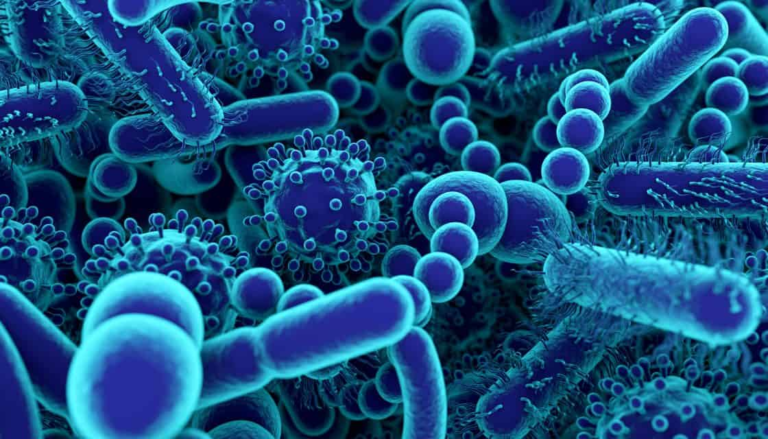How can you enhance your gut health to improve overall well-being? What role does the microbiome play in your digestive system? Understanding the complexities of gut health and the microbiome is crucial for optimal health. Advanced modules in workshops provide comprehensive insights into this fascinating area, helping you make informed decisions about your diet and lifestyle.
Who Can Join Advanced Nutrition Courses?
An advanced nutrition course and workshops are intended for a wide spectrum of people who want to learn more about gut health and well-being.
These courses are ideal for:
- Healthcare Professionals: Doctors, nurses, dietitians, and other healthcare practitioners who want to expand their expertise in nutrition and integrate this knowledge into their practice.
- Fitness Trainers and Coaches: Individuals in the fitness industry looking to provide comprehensive advice to their clients, covering both exercise and nutritional aspects.
- Students and Graduates: Those studying nutrition, dietetics, or related subjects who want to improve their comprehension and earn advanced knowledge for their jobs.
- Health Enthusiasts: Individuals interested in personal health and wellness who want to learn more about how diet affects gut health and general well-being.
These courses provide useful information and practical skills that can be used professionally and personally. Participants in these programs can comprehensively understand advanced topics and their applications.
Understanding the Gut Microbiome
The microbiome of the gut is a colony of beneficial bacteria that live in your digestive tract. These microorganisms play important roles in digestion, nutrition absorption, and immunological function. A diverse population of beneficial bacteria characterizes a healthy microbiome.
Factors such as diet, stress, and antibiotics can impact the balance of your gut microbiome. Understanding how to support a healthy microbiome through diet and lifestyle changes is key to optimal digestive health. Advanced modules in these courses can provide the knowledge needed to make these adjustments effectively.
The Role of Probiotics and Prebiotics
Probiotics and prebiotics are essential for supporting a healthy gut microbiome. Probiotics are live, helpful microorganisms that inhabit fermented foods and supplements. Prebiotics are non-digestible fibres that feed these beneficial bacteria.
- Probiotics: Found in yoghurt, kefir, sauerkraut, and other fermented foods.
- Prebiotics: Abundant in garlic, onions, bananas, and whole grains.
Including probiotics and prebiotics in your diet helps maintain a balanced gut microbiome. They collaborate to promote the rapid growth of good bacteria and improve gut health.
Dietary Strategies for Gut Health
Diet significantly influences the health of your gut microbiota. Consuming a variety of plant-based diets can boost microbial diversity in the gut. Fiber-rich foods like fresh produce, lentils, and whole grains are exceptionally healthy.
Reducing intake of processed foods, sugars, and artificial food additives can also improve gut health. These foods can upset the balance of gut bacteria, resulting in digestive problems. Adopting a diet that prioritizes unprocessed foods supports a healthy gut microbiome.
Managing Stress for a Healthy Gut
Stress can hurt gut health by altering the microbiome and compromising digestion. Practices such as mindfulness, yoga, and deep breathing exercises can help manage stress levels. Maintaining a healthy gut involves not just dietary changes but also lifestyle adjustments.
Physical exercise is another powerful strategy for reducing stress and promoting gut health. Exercise can enhance the diversity of the microbiome and improve overall digestive function. Combining stress-management practices with a balanced diet improves intestinal health.
The Impact of Antibiotics on Gut Health
Antibiotics can drastically affect the gut microbiota by destroying both dangerous and helpful bacteria. While necessary for treating infections, overuse of antibiotics can lead to a disrupted microbiome and digestive issues.
To avoid these effects, it’s essential to take probiotics during and after antibiotic treatment. This can help restore the balance of beneficial bacteria in the gut.
Personalized Nutrition for Gut Health
Every individual’s gut microbiome is unique and influenced by genetics, diet, and lifestyle. Personalized health plans tailored to specific needs can optimize gut health. Advanced modules in these courses often include training on creating customized dietary plans based on microbiome analysis.
Personalized nutrition involves identifying specific foods and supplements that support your unique microbiome. This strategy ensures you get the most effective dietary interventions for gut health. Personalizing your diet can improve digestion and enhance immune function and overall health.
Supercharging your gut health involves understanding the complexities of the microbiome and making informed dietary and lifestyle choices. An advanced nutrition course provides the knowledge to optimize your gut health through personalized plans, dietary strategies, and stress management techniques.
Investing in these courses offers long-term benefits, helping you maintain a healthy gut microbiome. Remember, a well-balanced gut is vital to overall well-being. By diving deep into the microbiome with advanced modules, you can achieve better digestive health and enhance your quality of life.

